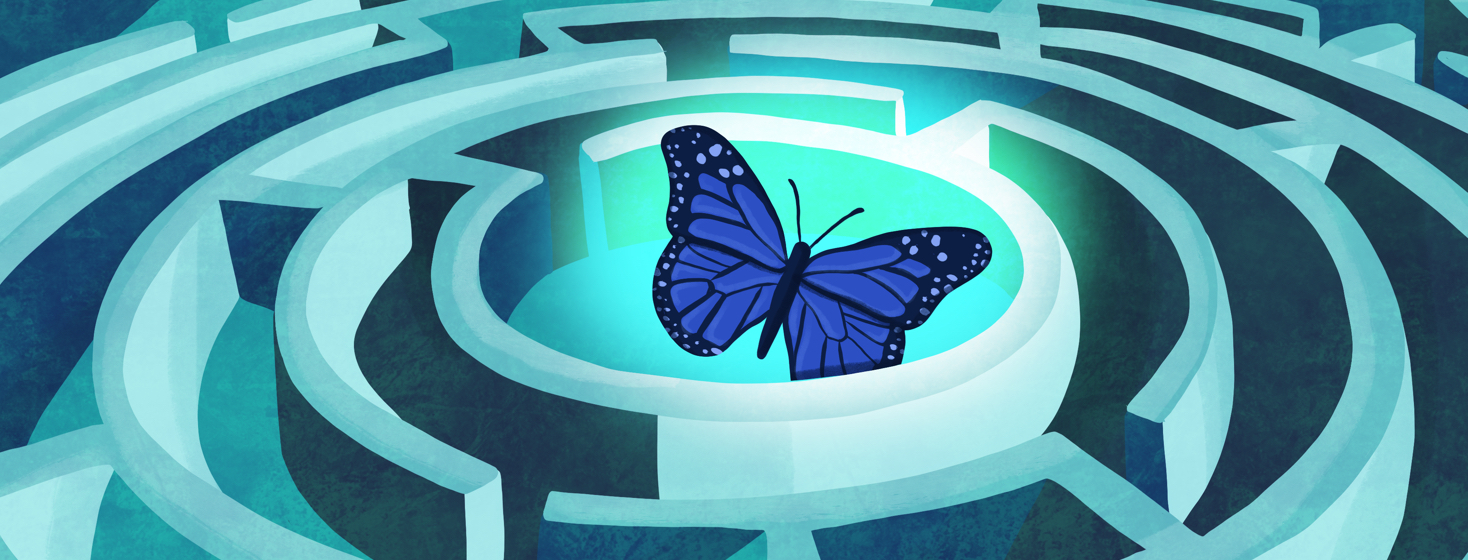Age of Lupus Symptom Onset vs. Diagnosis
Not only do symptoms of lupus vary widely, so does the length of time that symptoms stay present. Symptoms such as brain fog, seizures, alopecia, and rashes may show up suddenly, then disappear just as quickly.
We recently surveyed hundreds of people with lupus to find out more about their symptoms, and life with lupus in general. The results from our 2020 Lupus In America survey revealed that although there are differences in navigating lupus, there are many similarities, too.
Lupus symptoms versus diagnosis
Overall, about 1 in 5 survey participants started experiencing symptoms before adulthood (under 18 years old). Another 25 percent started experiencing symptoms between 18 and 29 years old, and a similar amount had their first symptoms between 30 and 39 years old. The remaining 30 percent of participants experienced their first symptoms after 40 years old.
However, one trend seen among people responding to the survey was that age of diagnosis often lagged behind the age of first symptoms. About 70 percent of participants received their lupus diagnosis between the ages of 30 and 60 years old. This delay to diagnosis may be a common experience for many with lupus and may be due to nonspecific symptoms and misdiagnoses along the way.
Because of this, it is common for it to take years for doctors to diagnose lupus.
Lupus community experiences with diagnosis
To hear more about your experiences, we reached out on Lupus.net Facebook page, and we asked you to fill in the blank: “My lupus symptoms started at age ___. I was diagnosed at ___ years old.”
More than 100 community members commented, and here is what you had to say.
Lupus symptoms in childhood
For some of you, lupus symptoms showed up in childhood. This is a diagnosis you have been dealing with your whole life. Many of you who experienced symptoms early on received a diagnosis shortly thereafter.
“My lupus symptoms started at age 5. I was diagnosed at 8ish years old.”
“My symptoms started at age 11, and I was diagnosed at age 12. I lost almost all of my hair, experienced joint pains and stiffness, Raynaud’s disease, enlarged spleen, butterfly rash, and extreme fatigue were just some of the symptoms I experienced coupled with abnormal labs made it fairly easy for my physicians to diagnose me in one year. I am 48 years old now.”
Lupus symptoms in teens
Many community members were in their teens when the symptoms of lupus began showing up. However, several of you shared that it took more than a decade for a doctor to correctly name what was happening with you.
“My lupus symptoms started at age 16 and I was diagnosed with SLE Multi and Nephritis Stage 4 at 27.”
“Started at age 17. I was diagnosed at age 26.”
Lupus symptoms in the 30s
Lupus most commonly starts showing up in the teen years through the early 30s. More than a few of you shared that this disease did not start affecting you until your 30s or 40s. However, you also shared that it took two decades for doctors to connect the dots, which, sadly, makes sense because this is a disease with flare-ups and remissions. Because it comes and goes, one way to help your doctor if you are unsure if you have lupus is to keep a daily journal of symptoms so that you remember and have a record of what you have been dealing with, and so that your doctor can see the bigger picture behind your flare-ups.
“My symptoms started when I was 30-ish. I was diagnosed at 50.”
“Started in my 40’s and the diagnosis came when I was 62.”
Lupus symptoms and diagnosis in the 40s
We also saw that many of you who experienced symptoms in your 30s and 40s were diagnosed the same year. This could be because older patients are more in tune with what is ‘normal’ for their bodies, and are better able to explain to a doctor what is going on. Or, it could be that many of you saw skilled doctors as soon as possible. However it happened, there is relief in having a diagnosis—and course of treatment—sooner rather than later.
“38/38.”
“Symptoms started at age 30 and was I was diagnosed at age 30.”
“Symptoms started at age 40 and I was diagnosed at 40.”
We want to say thank you to everyone who shared this story. We appreciate how active and vocal the lupus community is. Thank you.

Join the conversation